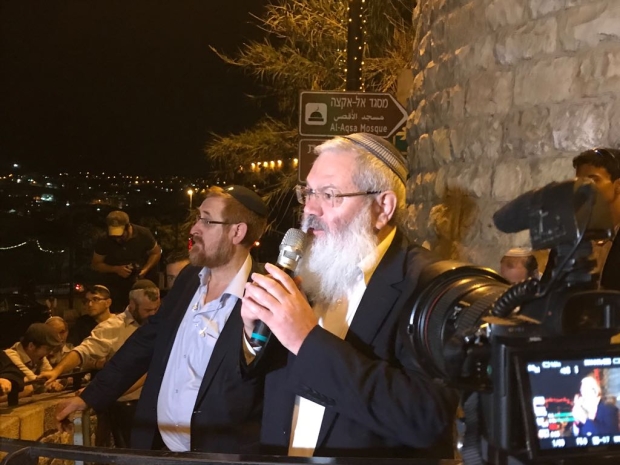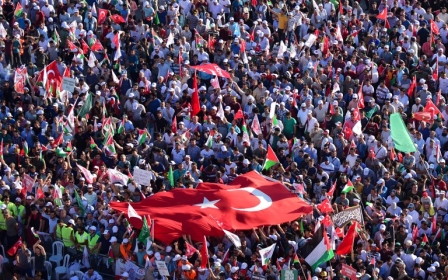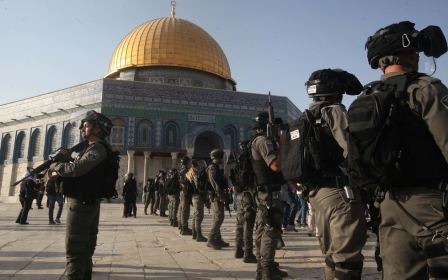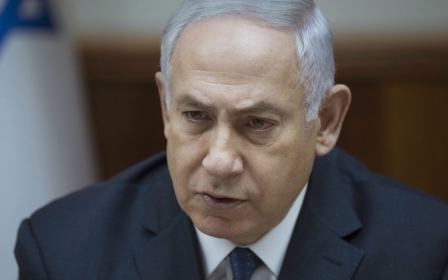Israelis gather in Jerusalem's Old City for Tisha B'av fast
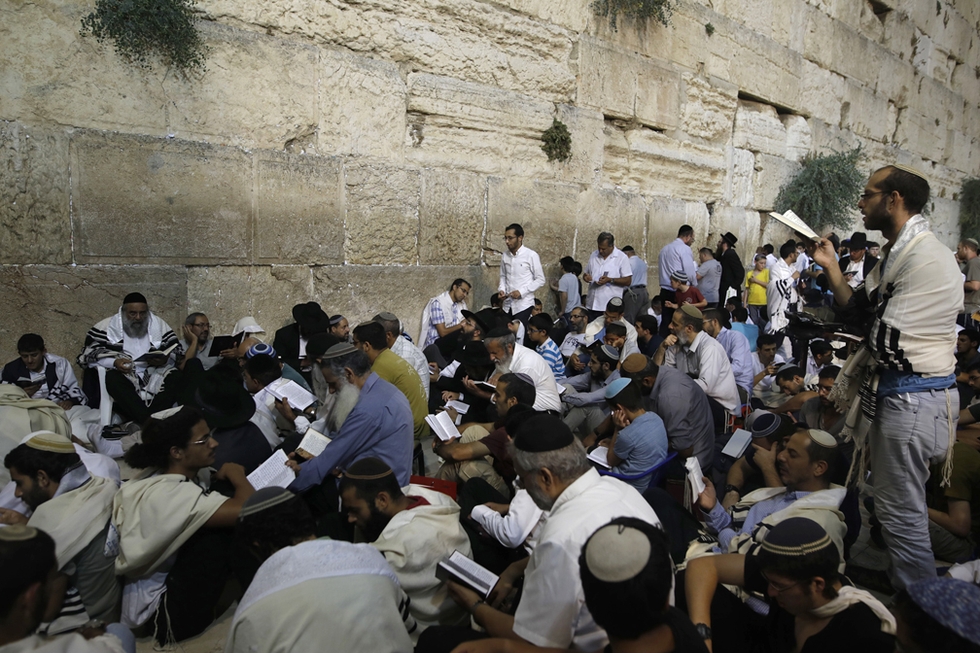
Thousands of Israelis attended prayers at the Western Wall in Jerusalem to observe the start of the Tisha B'av fasting day on Monday night, days after violence shook the city.
Right-wing groups also marched around the walls of the Old City, including the Women in Green, which calls for Israel's annexation of the West Bank and Gaza, as the area was sealed off to Palestinians.
The streets were sealed off to Palestinians during the demonstration, restricting local residents' freedom of movement.
Yehuda Glick, a Likud lawmaker and leader of the Temple movement, which calls for Israel's takeover of the Aqsa compound, also spoke to marchers.
"The battle is here," Glick said of Jerusalem, thanking security forces.
Israeli marchers clashed with local Palestinians when settlers attacked East Jerusalem residents at Temple Mount's Council Gate. But security officers, who were heavily present, broke off the clashes.
Prayer leaders read aloud from the Book of Lamentations, the prophet Jeremiah's biblical account of the destruction of the First Jewish Temple by invading Babylonians in 586 BC.
The Western Wall is a remnant of the Second Jewish Temple, built on the site of the first and destroyed by the Romans in 70 AD.
The wall is at the foot of the Haram al-Sharif compound housing al-Aqsa mosque and the golden-topped Dome of the Rock in the heart of the Old City, the third holiest site in Islam.
Tisha B'av commemorates the destruction of both temples, as well several other disasters in Jewish history.
The event comes after relative calm returned to Jerusalem following days of Palestinian protests over al-Aqsa.
Israel installed metal detectors at entry points to al-Aqsa mosque after two police guards were shot dead on 14 July. Since then, Israeli forces and a settler have killed three Palestinian protestors, and three Israeli settlers in the West Bank were killed by a Palestinian.
Installation of the metal detectors was considered by Palestinians as a declaration of sovereignty by Israel over Islam’s third holiest site. They have refused to enter through the gates, praying in the streets instead as a form of protest.
The crisis was ended when the authorities removed the newly installed measures, including metal detectors.
The site has frequently been a flashpoint in the Israeli-Palestinian conflict.
Under a decades-old agreement, only Muslims are allowed to pray inside the Aqsa mosque compound, although anyone can visit, including Jews.
Police spokesman Micky Rosenfeld said in a statement that extra units were being deployed throughout the 24-hour period.
While many of the thousands of worshippers at the Western Wall on Monday evening were religious, recognisable by the men's skullcaps and women's long dresses, secular Jews also attended the ceremonies.
"I'm not really religious but it's important for me to come here for this commemoration, this day of mourning," said 25-year-old Leora Kaufman.
"Tisha B'av is also a reminder of the need to stay united."
New MEE newsletter: Jerusalem Dispatch
Sign up to get the latest insights and analysis on Israel-Palestine, alongside Turkey Unpacked and other MEE newsletters
Middle East Eye delivers independent and unrivalled coverage and analysis of the Middle East, North Africa and beyond. To learn more about republishing this content and the associated fees, please fill out this form. More about MEE can be found here.


